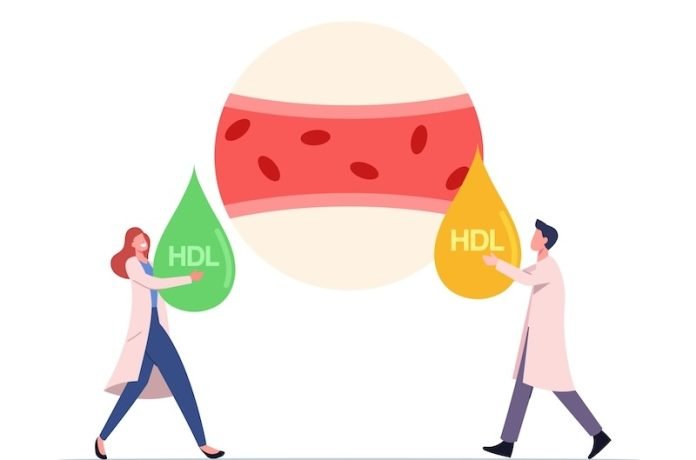
Cholesterol is a fatty substance in the blood that’s essential for building cells and producing certain hormones. However, having too much cholesterol, especially the ‘bad’ kind known as LDL (low-density lipoprotein), can lead to serious health issues like heart disease and stroke.
This review will explain the common causes of high blood cholesterol in an easy-to-understand way, drawing on current research.
First, it’s important to recognize that cholesterol levels can be influenced by both genetic and lifestyle factors. Some people inherit conditions from their parents that cause high cholesterol, the most common being familial hypercholesterolemia.
This genetic disorder prevents the body from removing LDL cholesterol efficiently, leading to its accumulation in the blood. Studies estimate that familial hypercholesterolemia affects 1 in 250 people worldwide, making it a significant concern for heart health.
Diet plays a crucial role in cholesterol levels. Eating foods high in saturated fats, trans fats, and cholesterol can increase blood cholesterol.
Saturated fats are found in foods like red meat and full-fat dairy products, while trans fats are often present in fried foods and commercial baked goods.
Research has shown that these fats cause the liver to produce more LDL cholesterol, which can build up in the arteries, forming plaques that reduce or block blood flow.
Physical activity, or the lack thereof, also influences cholesterol levels. Regular exercise helps raise HDL (high-density lipoprotein) cholesterol, the ‘good’ cholesterol that helps remove LDL cholesterol from the arteries.
A sedentary lifestyle, on the other hand, can lead to higher levels of LDL and lower levels of HDL, increasing the risk of heart disease. Studies consistently demonstrate that even moderate physical activity can significantly improve cholesterol profiles and overall cardiovascular health.
Another contributing factor is obesity. Excess body fat, particularly around the abdomen, can negatively affect how the body manages cholesterol, increasing LDL levels and lowering HDL levels.
Research links obesity to an increased risk of developing heart disease, partly due to its impact on cholesterol levels and inflammation in the body.
Smoking is a major risk factor as well. Chemicals in cigarette smoke damage the walls of blood vessels, making them more prone to accumulate fatty deposits.
Moreover, smoking lowers HDL cholesterol, which exacerbates the problem by reducing the body’s ability to remove LDL cholesterol from the blood.
Alcohol consumption can also affect cholesterol levels. While moderate alcohol use has been shown in some studies to boost HDL cholesterol slightly, excessive drinking can lead to higher total cholesterol levels, including both HDL and LDL.
Managing cholesterol often involves lifestyle changes to address these risk factors. Eating a healthy diet low in saturated and trans fats, exercising regularly, maintaining a healthy weight, quitting smoking, and moderating alcohol intake are all effective strategies.
For those with genetic conditions or who cannot manage cholesterol through lifestyle alone, medications such as statins may be prescribed. These drugs help lower LDL cholesterol levels and reduce the risk of heart attacks and strokes.
In conclusion, high blood cholesterol is influenced by a mix of genetic and lifestyle factors. Understanding these can help individuals make informed decisions about their health.
While genetic factors may not be controllable, making positive lifestyle changes can significantly reduce the risk of serious health problems associated with high cholesterol.
If you care about heart health, please read studies about how drinking milk affects risks of heart disease , and herbal supplements could harm your heart rhythm.
For more information about heart health, please see recent studies about how espresso coffee affects your cholesterol level, and results showing Vitamin K2 could help reduce heart disease risk.
Copyright © 2024 Knowridge Science Report. All rights reserved.



